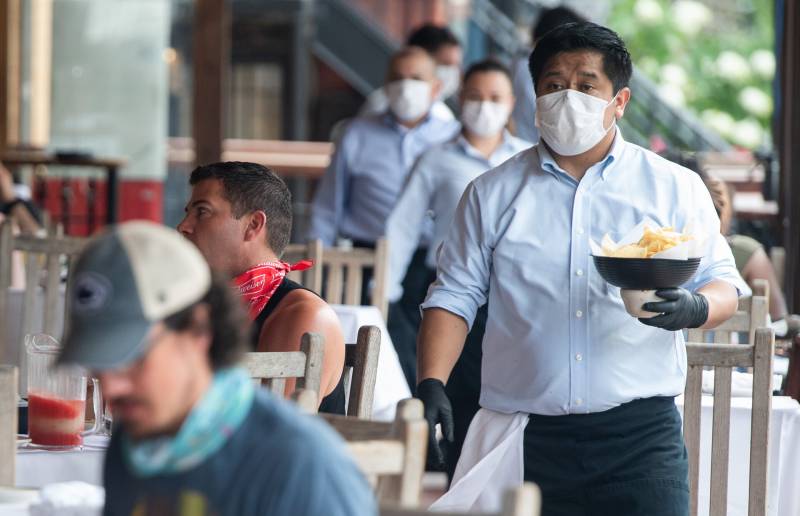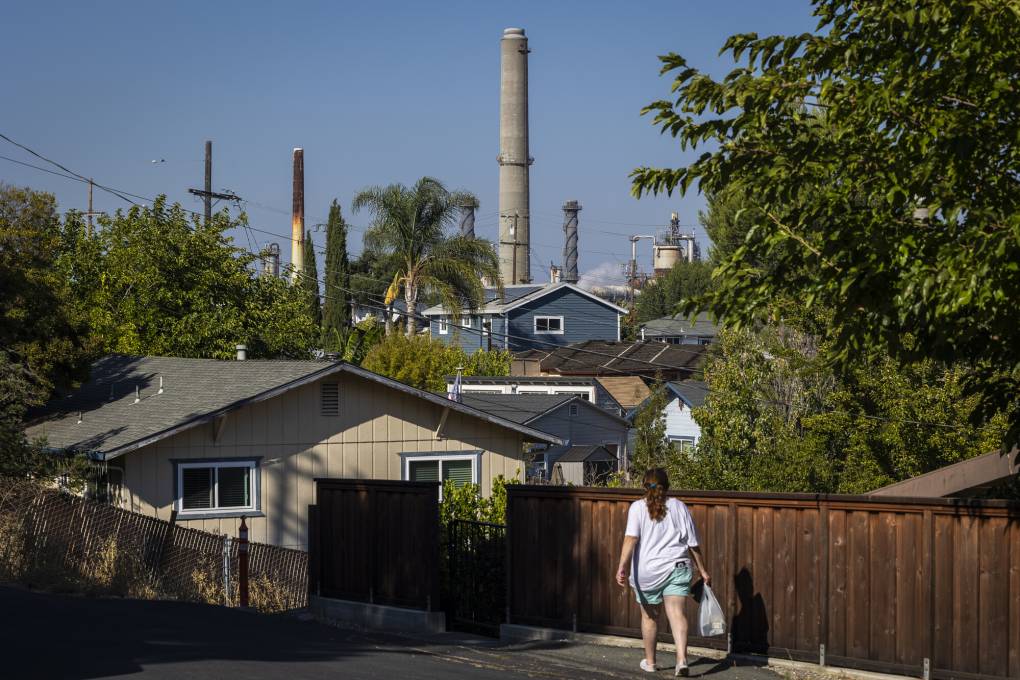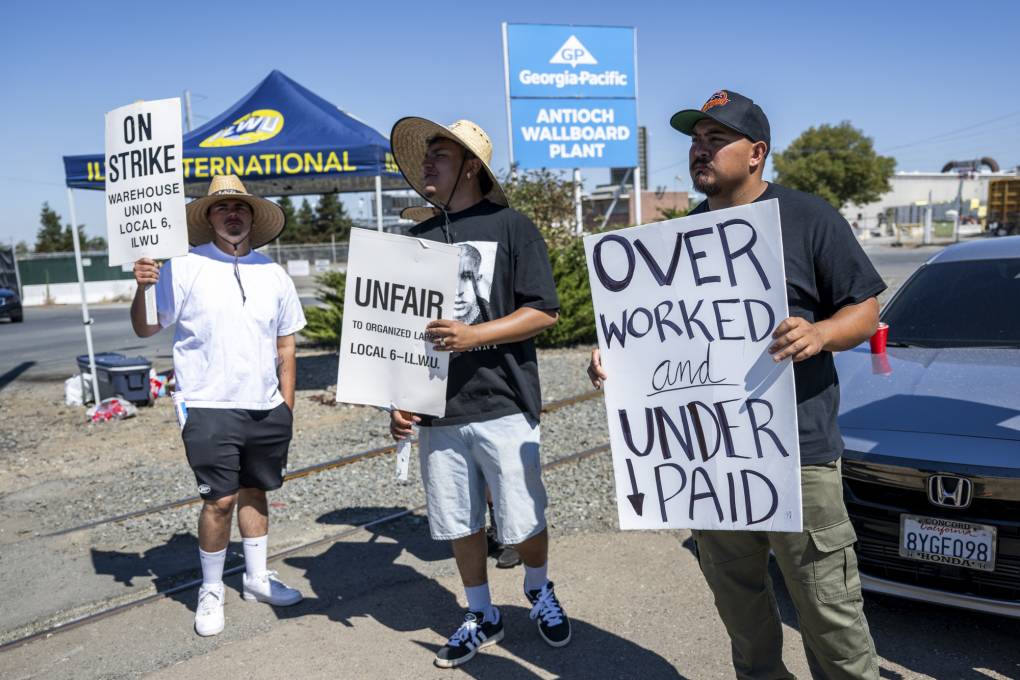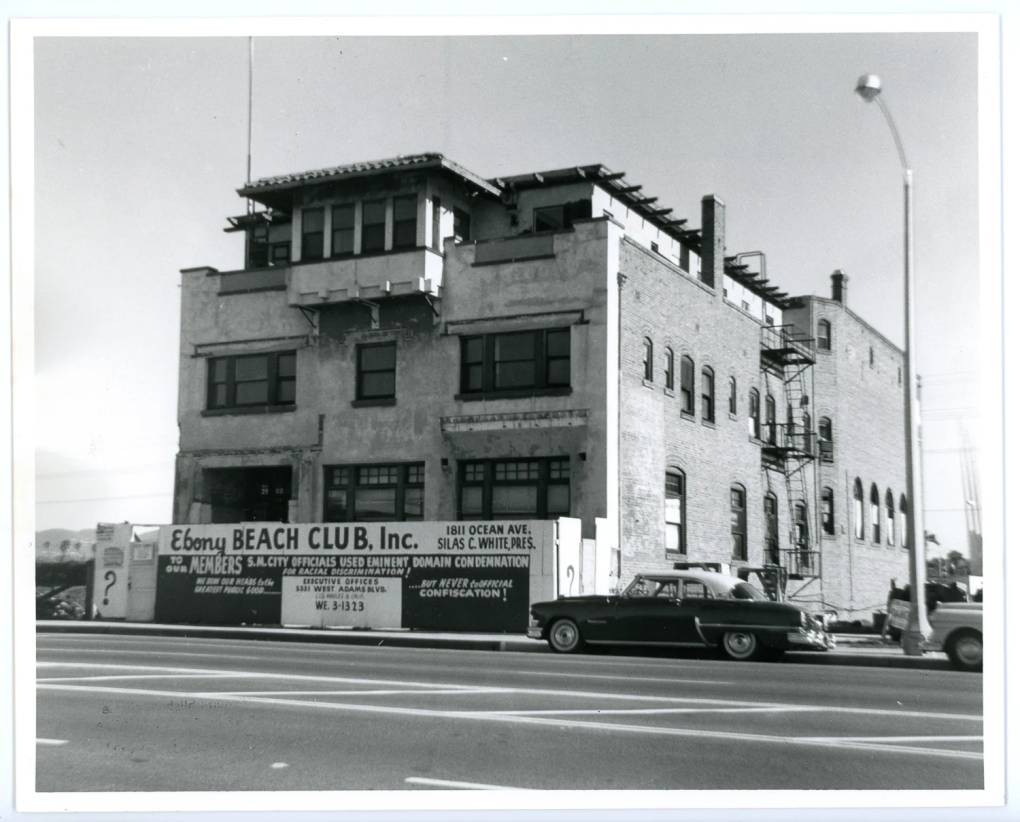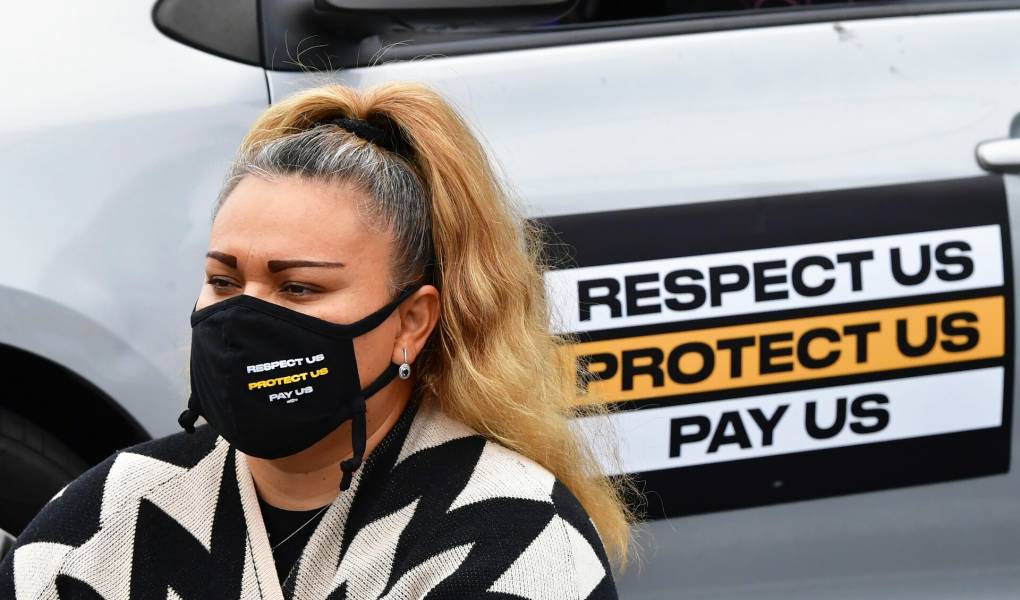Updated 10 a.m. Friday
Vaccinated or not, workers in California will still be required to keep their masks on unless every employee in the room is fully inoculated against the coronavirus — even after the state more broadly reopens on June 15.
That's the new mandate under revised rules approved Thursday night by a sharply divided group of California workplace regulators. Still, the seven-member California Occupational Safety and Health Standards Board, which sets standards for Cal/OSHA, made clear the regulations are only a stopgap while they consider further easing pandemic rules in the coming weeks or months.
After hearing more than seven hours of impassioned public comment, mostly from opponents of the revisions, the board initially rejected the new rules on a 4-3 vote.
"We have to create reasonable and enforceable standards," said board member Nola Kennedy, who at first voted against adopting the changes. "I just don’t think this proposal is there yet."
But board members quickly reconsidered after realizing that not adopting the changes would leave workers subject to the current standards, which require masks for all employees, along with social distancing and partitions between employees in some circumstances.
"We don’t want to leave the last one in place when this is better than that," said board chairman David Thomas, acknowledging the revised rules were far from perfect.
The board then unanimously — if reluctantly — adopted the changes, while appointing a three-member subcommittee to consider additional revisions.
Without further changes, the revised workplace rules could remain in place into early next year, although the board is likely to take up the issue again when it meets next on June 17.
